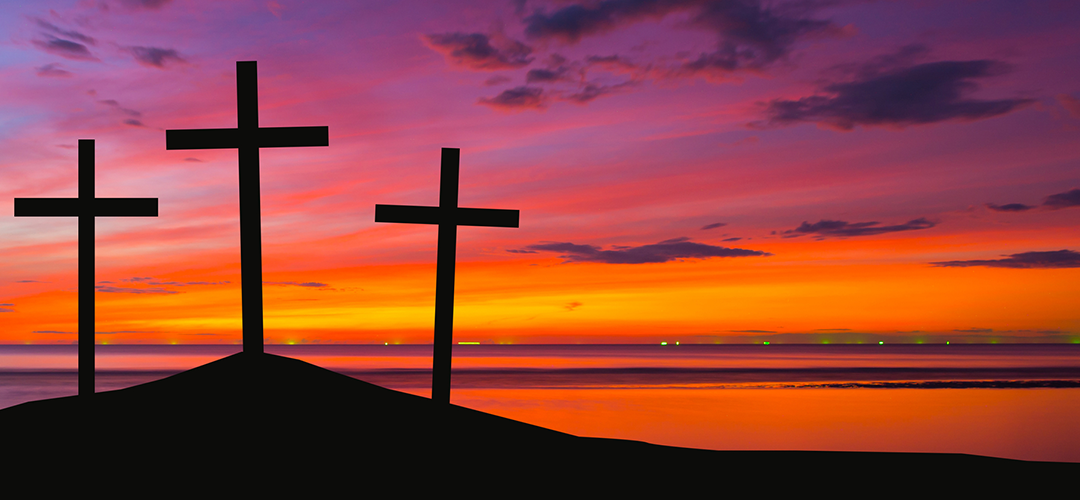
Easter Reflections (1) He is Risen…!
He is Risen…!
The first of six reflections on Jesus’ resurrection
It is sometimes said that the most difficult challenge for the Christian church today is to get people to believe. I think the opposite is true. Most people will believe almost anything, providing that what is said is communicated with authority.
GK Chesterton once observed, ‘When a person stops believing in God they don’t then believe in nothing, they believe anything’.
In this first of the Easter Season Reflections let me turn to Luke 24:36-37 where we read: …Jesus himself stood among them, and said to them (the disciples), “Peace be with you.” But they were startled and terrified, thinking it was a ghost.
And Luke comments, ‘even when he showed them his hands and his feet’ – no doubt with the imprints of the nails on them – in their joy they were still disbelieving and still wondering (24:41). These men who had worked in the practical world as fishermen, men of business, and even tax-collection, were bewildered and confused. They doubted what it all meant. ‘Is this really Jesus or just a spirit, a ghost?’ they were asking.
Aware of their questions and doubts, Jesus addressed one issue at a time. “Touch me and see; for a ghost does not have flesh and bones…,” he said. He then asked for food (24:41). They gave him a piece of broiled fish, and he took it and ate in their presence (24:42-43).
During his life Stephen Hawking was an influential voice on the subject of matters of faith. According to Dr. John Lennox, Professor of Mathematics at Oxford University, Hawking said of miracles, such as the resurrection: “We either believe them or we believe in the scientific understanding of the laws of nature, but not both” (John C. Lennox, God and Stephen Hawking (Lion, Oxford: 2011, p.82).
Dr. Lennox observes that many scientists say, “miracles arose in primitive, pre-scientific cultures, where people were ignorant of the laws of nature and so readily accepted miracle stories”.
To views like this Lennox responds: “In order to recognize some event as a miracle, there must be some perceived regularity to which that event is an apparent exception!” (pp.84f) In other words, we don’t need the benefit of modern science to define ‘an extraordinary event’.
Lennox also notes that a second objection to miracles is this: “Now we know the laws of nature, miracles are impossible” (p.86).
However, as Lennox observes, “From a theistic perspective, the laws of nature predict what is bound to happen if God does not intervene… To argue that the laws of nature make it impossible for us to believe in the existence of God and the likelihood of his intervention in the universe is plainly false” (p.87).
It’s important we consider these matters. Thoughtful followers of Jesus Christ accept the laws of nature that science observes. Such laws are the observable regularities that God the creator has built into the universe. That said, such ‘laws’ do not prevent God from intervening if he chooses. When he does, we are able to identify the irregularity and speak of it as ‘a miracle’.
So, with respect to the resurrection of Jesus, the New Testament does not speak of it as a result of a natural mechanism. Rather, it happened because God intervened, using his supernatural power (Romans 6:4b).
To return to Luke 24. In each of the three scenes in this chapter, the Scriptures and Jesus’ own words provide the explanation of what happened.
In the third scene (24:36-49) these elements are brought together: “These are my words that I spoke to you while I was still with you”, Jesus said. Everything he had taught and done, had been foreshadowed in the Scriptures – even his death and resurrection.
Jesus’ resurrection has no significance without his death. It cannot point to God’s forgiveness of us unless our sin has been dealt with once and for all. The resurrection is a glorious message because it makes sense of Jesus’ death.
At first the disciples felt his death was the end of all their hopes. But then they discovered it to be the foundation of all their hopes.
Malcolm Muggeridge, former editor of the English, Punch, speaker and author, once wrote: ‘Confronted with the reality (death is the one certainty in life), we may rage or despair, induce forgetfulness, solace ourselves with fantasies that science will in due course discover how we came to be here and to what end, and how we may project our existence, individually or collectively, into some Brave New World spanning the universe in which Man reigns supreme.
‘God’s alternative proposition is the Resurrection – a man dying who rises from the dead… I close with, ‘Done’…: Christ is risen!’
© John G. Mason – www.anglicanconnection.com


